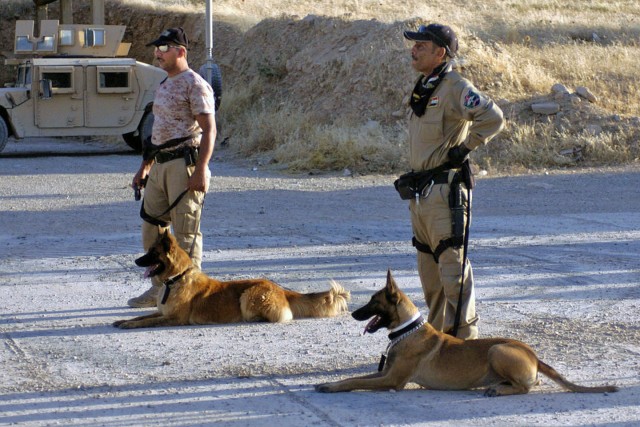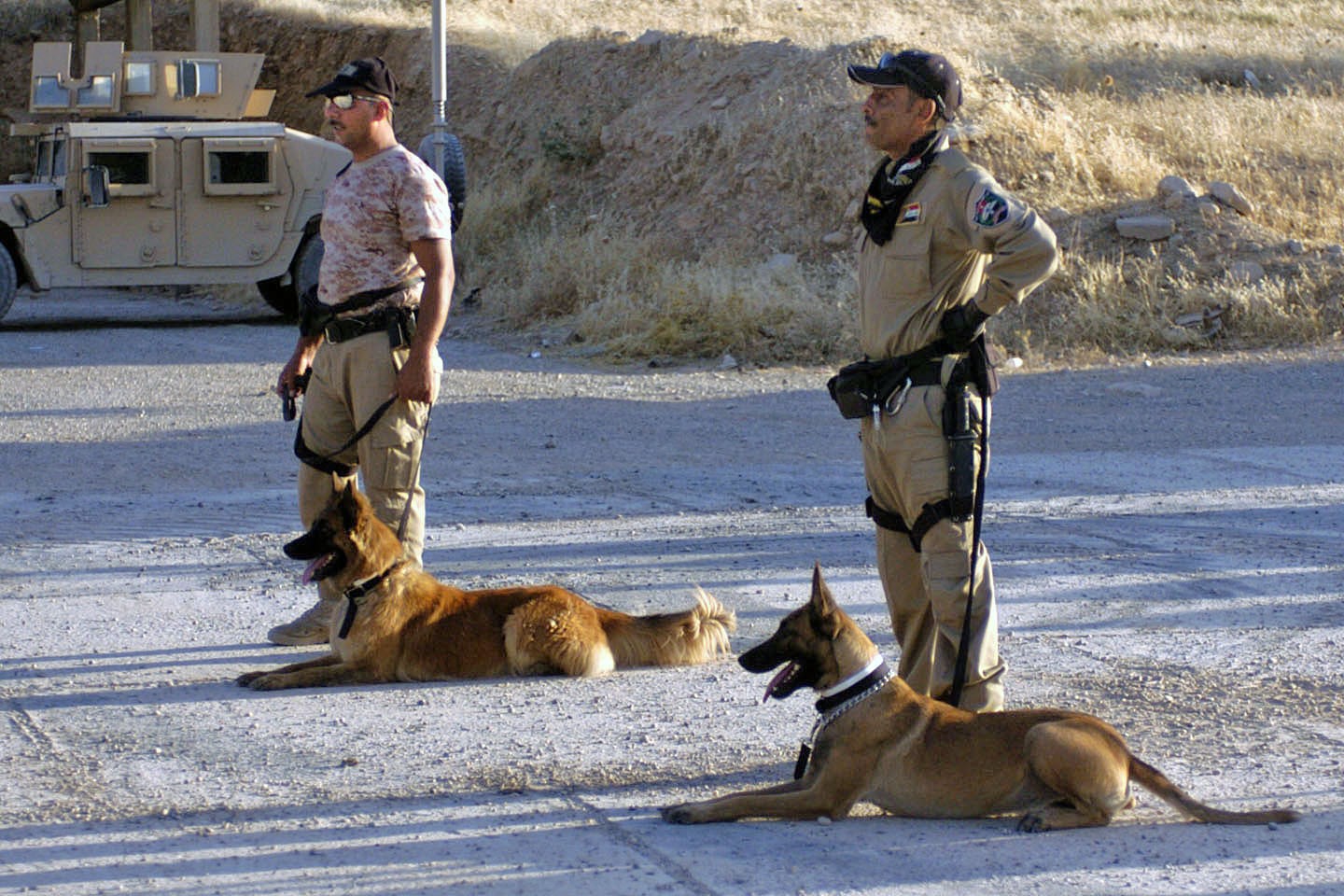MOSUL, Iraq (Army News Service, Aug. 21, 2009) -- Chew toys and leashes in hand, Iraqi Police and their working dogs arrived here, Aug. 16, to fine tune their skills in basic obedience and explosive-detection techniques.
The class is part two of initial dog training that the Iraqi Police received earlier in the year. Part two will focus on the handlers building relationships with their dogs while refining basic-obedience techniques along with methods used in explosives and narcotics detection.
The initial training consisted of introducing the Iraqi Police to working dogs as a resource, something the IP's did not have until now. In the last month, they acquired working dogs and created a K9 program to use in their everyday working environment.
"[The IP's] have a valuable asset now. A dog's nose is so much stronger than ours," said Navy Petty Officer 1st Class Matthew Nalley, lead instructor for the program. "I can't smell explosives when I'm walking down the road. These dogs can. If the IP have something that can give them an indication something is wrong, it can go a long way to help them out."
Each policeman practiced getting their dogs to sit and stay in place. When the dogs performed, they were rewarded with a rubber chew toy and praise. Both handler and dog seemed to be catching on quickly.
"I was thoroughly impressed with the way they have responded to their dogs. The dogs that they have want to be loyal and work with their handlers," said Nalley, "You can definitely tell they are building their relationship with their dogs."
The trainers use realistic training aids and walk dogs and handlers through a training lane allowing them the opportunity to get hands-on skills that will benefit them as they begin using the dogs in their daily work.
The training is event driven. The IP handlers walk through a scenario with their dogs as the class instructor observes. As issues or key points arise, the instructor stops the handler and advises them on different techniques.
"We try to do some basic obedience, and we plant some explosive training aids. We pay attention to what the dogs and handlers are doing during the training lane and give them advice on what they are doing if there are issues," said Nalley. "If there are no issues during the training, we praise the teams for doing their jobs well. If there is something we need to fine-tune, we'll give them the direction that they need."
For these IP's, this is the start of a long working relationship with their new best friends, the dogs.
When asked why he chose to get involved with the K9 program, one handler said he had an affinity to dogs and felt that it would be a valuable resource to help sustain security and prevent attacks in his community.
"We want to continue our partnership with the Iraqi Police so that they get the training that they need to sustain their program long after we are gone," said Nalley.
(Sgt. Christopher Kozloski serves with the 145th Mobile Public Affairs Detachment.)


Social Sharing